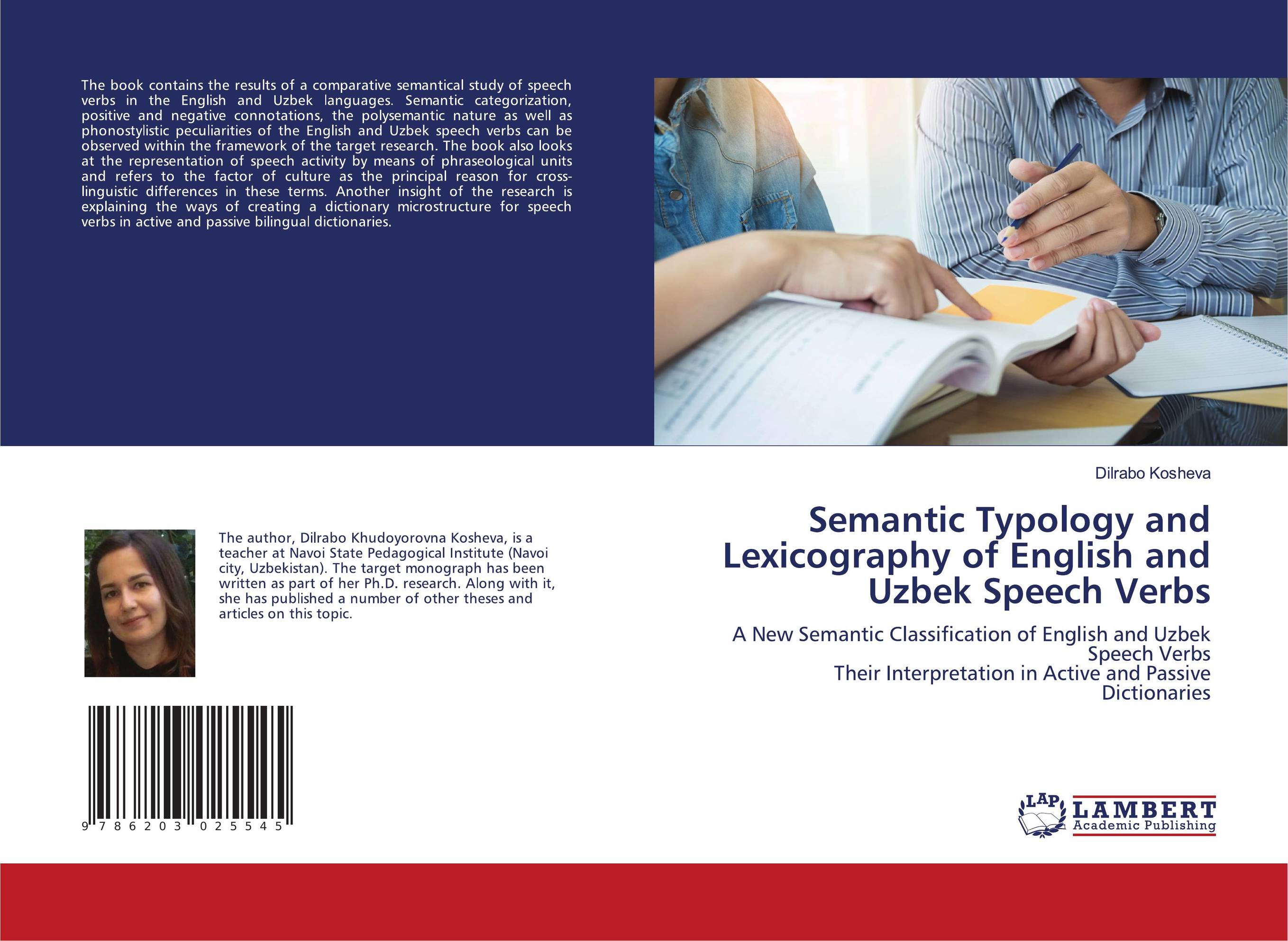| Поиск по каталогу |
|
(строгое соответствие)
|
- Профессиональная
- Научно-популярная
- Художественная
- Публицистика
- Детская
- Искусство
- Хобби, семья, дом
- Спорт
- Путеводители
- Блокноты, тетради, открытки
Semantic Typology and Lexicography of English and Uzbek Speech Verbs. A New Semantic Classification of English and Uzbek Speech Verbs Their Interpretation in Active and Passive Dictionaries

В наличии
| Местонахождение: Алматы | Состояние экземпляра: новый |

Бумажная
версия
версия
Автор: Dilrabo Kosheva
ISBN: 9786203025545
Год издания: 2020
Формат книги: 60×90/16 (145×215 мм)
Количество страниц: 80
Издательство: LAP LAMBERT Academic Publishing
Цена: 23919 тг
Положить в корзину
| Способы доставки в город Алматы * комплектация (срок до отгрузки) не более 2 рабочих дней |
| Самовывоз из города Алматы (пункты самовывоза партнёра CDEK) |
| Курьерская доставка CDEK из города Москва |
| Доставка Почтой России из города Москва |
Аннотация: The book contains the results of a comparative semantical study of speech verbs in the English and Uzbek languages. Semantic categorization, positive and negative connotations, the polysemantic nature as well as phonostylistic peculiarities of the English and Uzbek speech verbs can be observed within the framework of the target research. The book also looks at the representation of speech activity by means of phraseological units and refers to the factor of culture as the principal reason for cross-linguistic differences in these terms. Another insight of the research is explaining the ways of creating a dictionary microstructure for speech verbs in active and passive bilingual dictionaries.
Ключевые слова: Semantic typology, speech verbs, crosslinguistic differences, Polysemy, phonostylistics, lexicographical interpretation, speech idioms, negative and positive connotations, colexification



